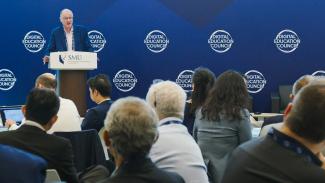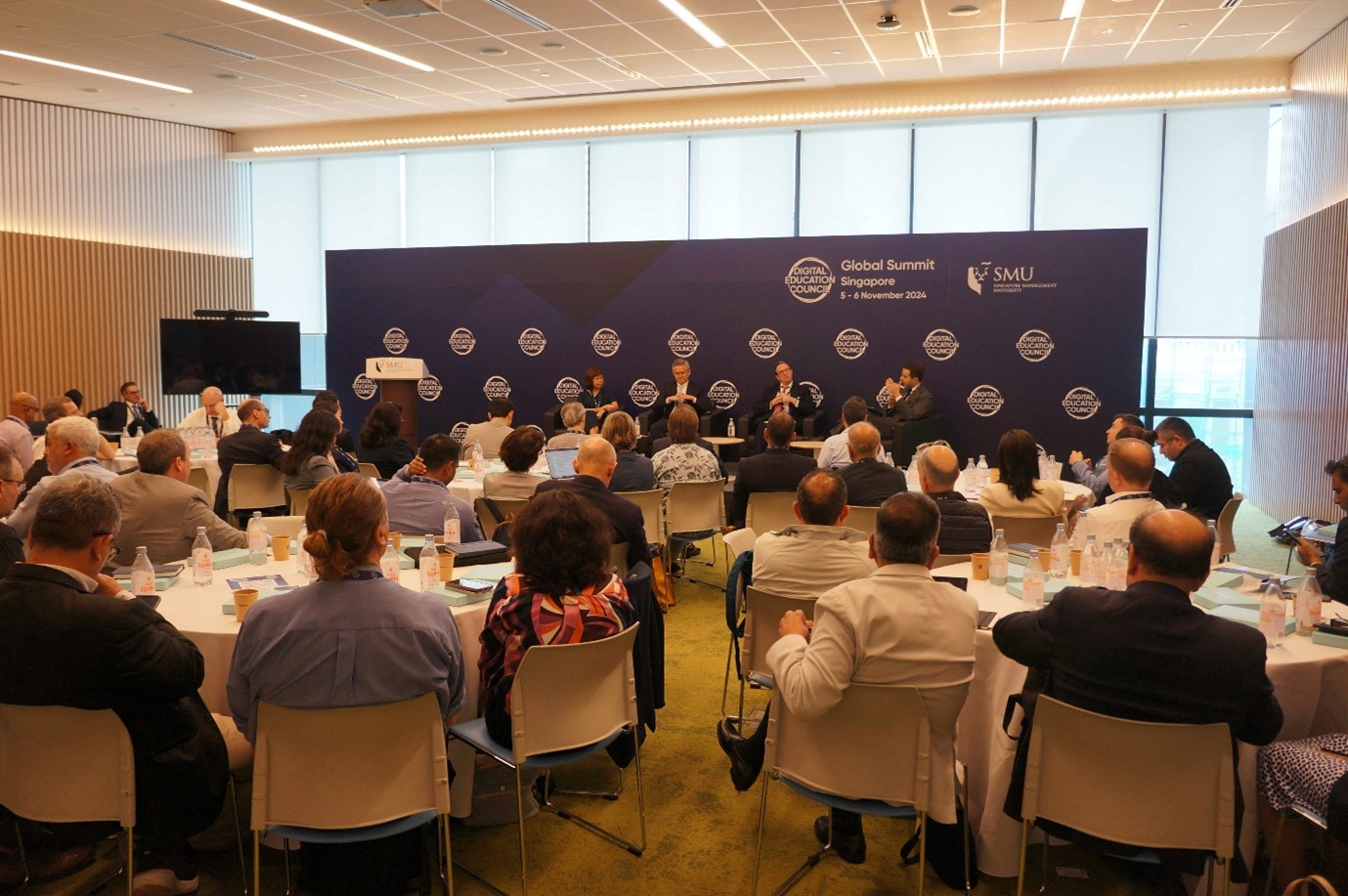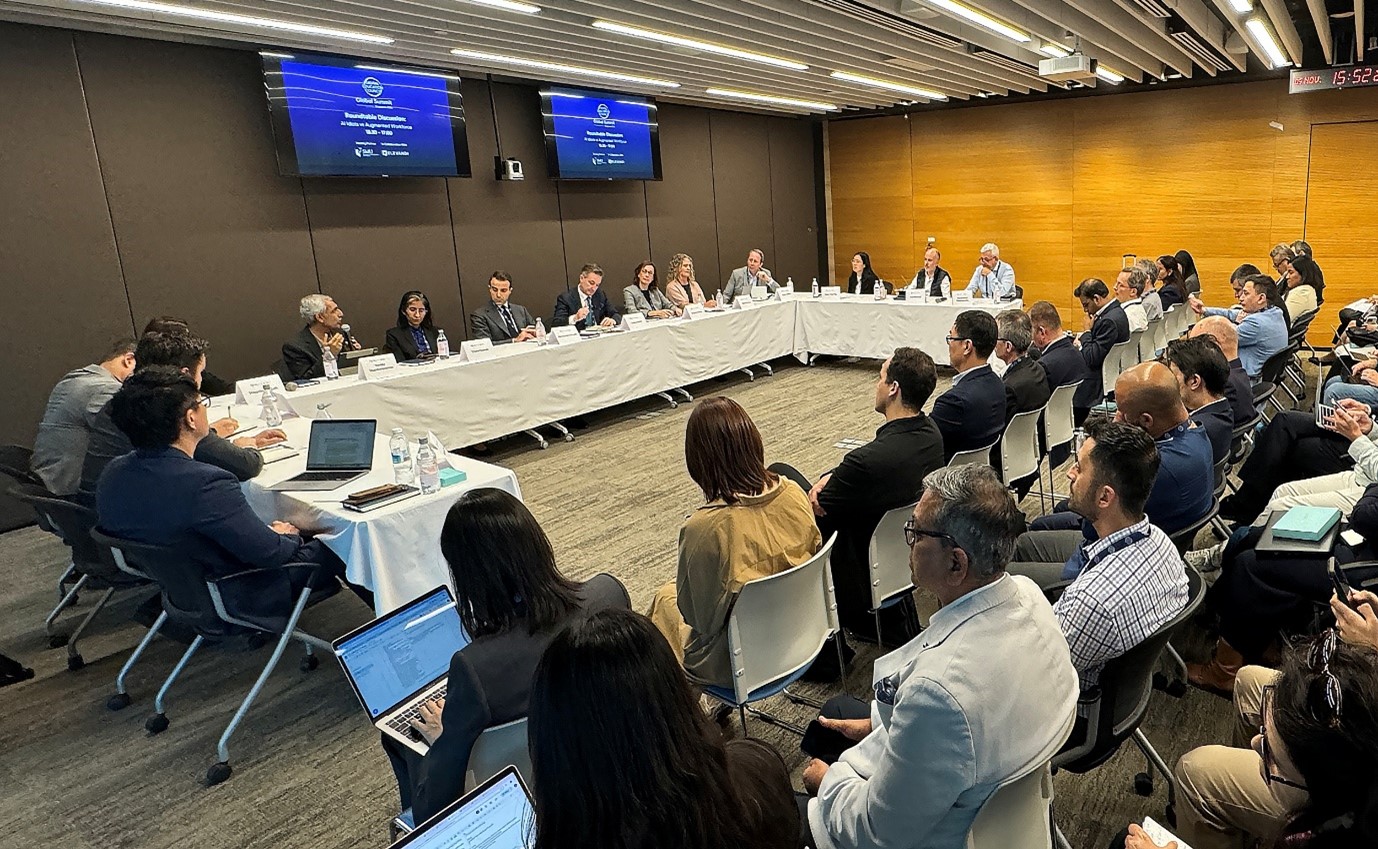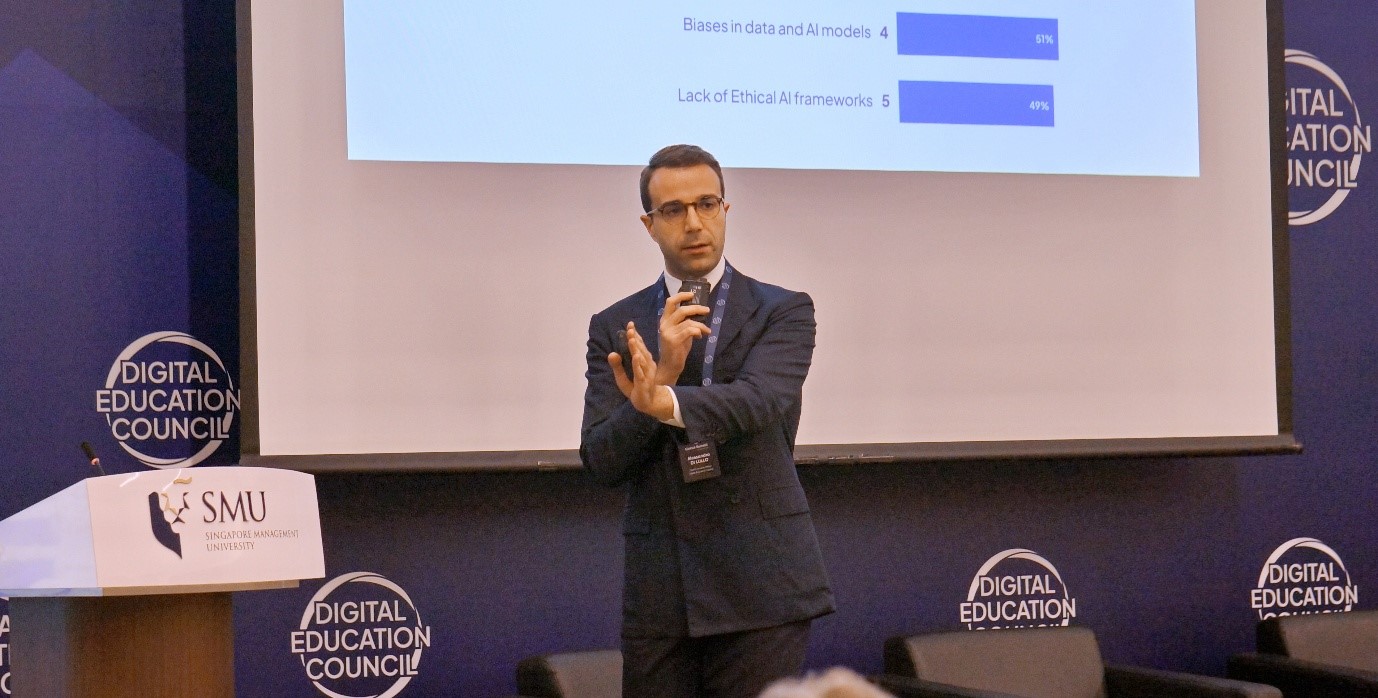
In recognition of the need to shape a responsible and sustainable future for digital education, Singapore Management University (SMU) and founding members of the Digital Education Council (DEC) organised the inaugural DEC Global Summit on 5 and 6 November 2024. Co-hosted by SMU Centre for Teaching Excellence, the Summit was attended by members of academia, government and businesses from more than 25 countries, who gathered at the University’s city campus to discuss global challenges and explore key actionable strategies for integrating digital and artificial intelligence technologies in higher education and skills development.
In his welcome address, Professor Timothy Clark, SMU Provost, emphasised the importance of institutions coming together to share insights and develop plans that encourage the beneficial integration of technology into education systems around the world. He discussed how the three key themes—(i) AI as a Force for Good: Strategies for Long-Term Success, (ii) Governance and Sustainability: Ensuring Responsible Innovation, and (iii) Capturing Future Readiness: Empowering People for the Future of Work—might better equip learners, educators, and institutions to thrive in a rapidly evolving technological landscape.

The Summit featured a series of engaging panel and sharing sessions centred around critical topics in digital and AI-driven education. These included Solving the AI Governance Problem: A Framework for the Education Industry, which examined strategies for responsible AI adoption; Policies for Growth and Sustainability in the Age of AI, highlighting regulatory and policy development; and Beyond the Hype: Practical Applications of AI in Higher Education, which showcased real-world use cases of AI in teaching, learning, and administration.
Other notable sessions included From Trust-Based to Skills-Based: Future-Proofing Employability and Jobs, exploring shifts towards skills-based assessments; Global Skills Taxonomies and Personalised Pathways, which addressed standards for skill classification and personalised learning; and Leveraging Technologies to Bridge the Digital Divide, which tackled educational inequalities through technology.
In a nod to the growing concerns towards environmental, social and governance standards, the Summit incorporated knowledge sessions such as ESG in Education: Practical Approaches for a Sustainable Tomorrow and What Are We Not Looking At? Reflecting on Blind Spots to highlight innovative practices and areas needing further attention.
Notable speakers from SMU at the two-day Summit included Professor Venky Shankararaman, Vice Provost (Education); Professor Lee Pey Woan, Dean, Yong Pung How School of Law; Professor Pradeep Varakantham, Director of CARE.AI Lab; Michael Low, Deputy Director, Curriculum Development & Digitalisation SMU Academy, and François Bogacz, Head of Learning and Innovation at SMU-ExD Executive Development.

In a roundtable discussion on the future of skills development on 5 November 2024, which was supported by Elevandi, an initiative of the Monetary Authority of Singapore (MAS), the experts gathered at SMU explored the extent of reliance on AI tools among students and young professionals. Moderated by Danny Bielik, DEC President, panellists included Venky Shankararaman, SMU Vice Provost (Education), Trisha Suresh, Head of Public Policy and Economic Graph of Southeast Asia at LinkedIn, Sean McMinn, Director of the Center for Education Innovation at The Hong Kong University of Science and Technology and Wan-Ying Tay, First Vice President of Learning and Development, UOB.
Throughout the hour-long session, the panel discussed AI’s impact on critical thinking and problem-solving skills. According to the Digital Education Council’s Global AI Student Survey 2024, 86% of university students use AI in their studies. With young professionals increasingly relying on AI to handle their daily tasks, this over-reliance risked diminishing critical thinking skills, potentially creating "AI idiots", or individuals who could use AI tools but lacked the ability to critically evaluate or supplement the outputs of these tools.
By seeking to confront this pertinent issue, the roundtable served as a platform for educators, industry leaders and policymakers to discuss actionable strategies that ensure AI is used to enhance capabilities without undermining critical judgment.
One of the key takeaways included a need to foster responsible AI use, balancing AI-driven productivity with the development of essential human skills and prioritising emerging skills and frameworks to prepare students and professionals for an evolving job market. To enable an open and honest conversation to generate actionable outcomes, the roundtable took place under the Chatham House Rule.

The Summit concluded with Alessandro Di Lullo, DEC Chief Executive Officer, inviting members to sign a Joint Communiqué, acknowledging the transformative role of digital and artificial intelligence technologies in higher education and skills development, and affirming their commitment to leveraging the DEC global platform to drive positive change. In an encouraging signal, members collectively agreed to drive AI literacy, cultivate environments for AI adoption, enable appropriate use of AI, maintain relevance at speed and to measure sustainability.
To learn more about the Digital Education Council, please click the following link: https://www.digitaleducationcouncil.com/